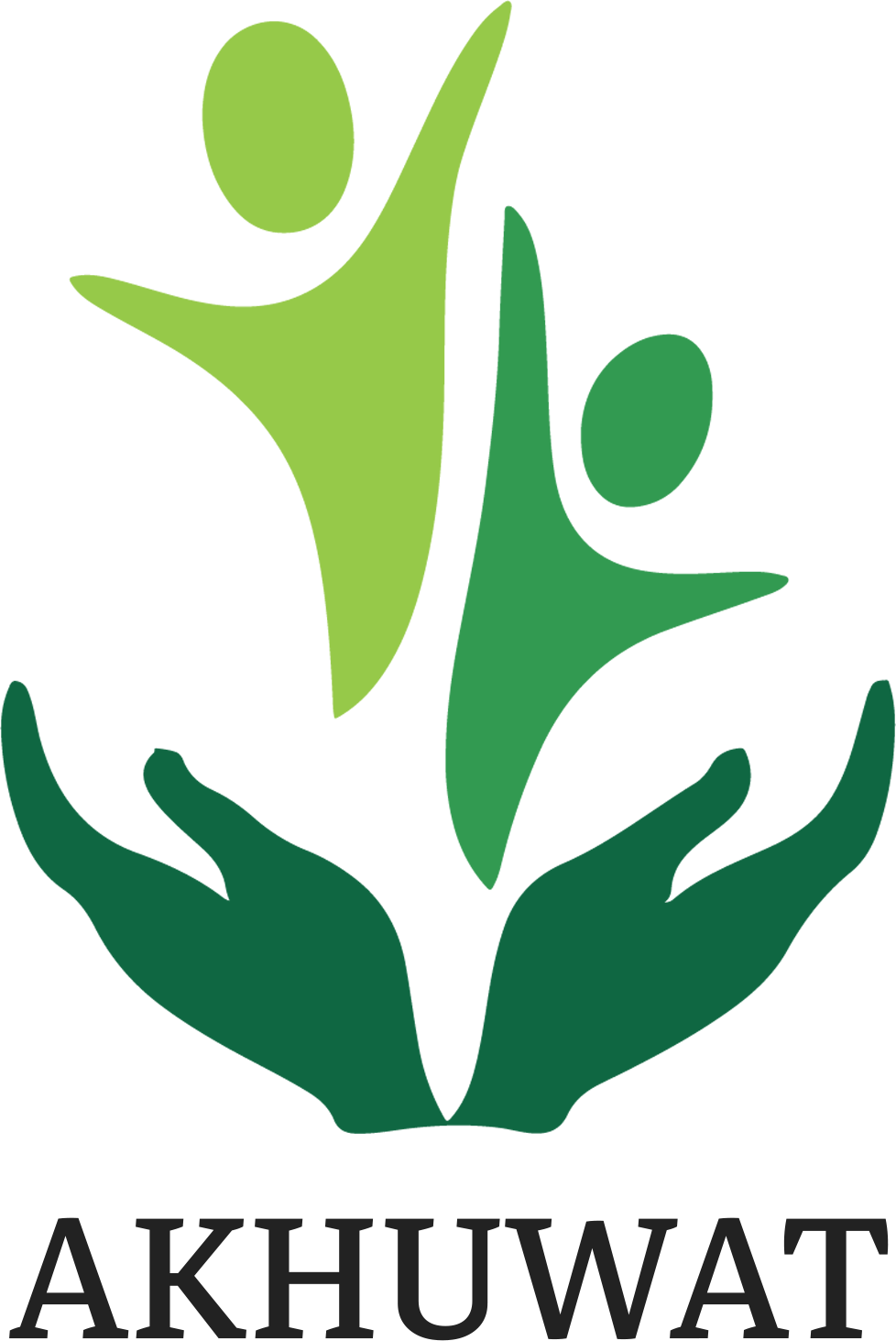[dzs_video source=”9263″ config=”skinauroradefault” autoplay=”on” cue=”on” loop=”on” qualities=”” responsive_ratio=”default”]
Vision
A poverty free society built on the principles of compassion and equity.
Mission
To alleviate poverty by empowering socially and economically marginalized families through interest free microfinance and education by harnessing entrepreneurial potential, capacity building and social guidance.
ABOUT US
Akhuwat, as a non-profit organization was established in 2001, but the concept of Akhuwat dates back to the year 622 CE founded upon the Islamic principle and tradition of solidarity, or MawaKhat (مواخات). In the year of the Hijra, fourteen hundred years ago the followers of the Prophet Muhammad (peace be upon him) persecuted by the Qurash of Mecca left their wealth and lands behind and sought refuge in Yatrib, later renamed Medina. The Prophet (PHUB) called out to the people of Medina, urging them to treat the people of Mecca as their brothers. What followed was a phenomenon unprecedented in world history. The people of Medina pledged that from then onwards, they would share half of whatever they owned with their brethren from Mecca.
This bond of Akhuwat on the face of it was to defuse a temporary calamity. In reality, it was to lay the enduring tradition of solidarity with one’s fellow citizens. It propagated inclusion instead of expulsion, social entrepreneurship rather than charity, growth as opposed to stagnation. The economic dividends of such an arrangement were apparent in a more equitable distribution of wealth and resources rather than their accumulation in the hands of a few stifling growth and stability and the creation of a healthy consumer base rather than hapless dependants. Akhuwat in the present century aspires to revive, this tradition, these age-old principles and MawaKhat (مواخات) remains its guiding purpose.
While Akhuwat derives its inspiration from the Islamic tradition of MawaKhat (مواخات) the message and programs of Akhuwat remain universal and all-embracing. Akhuwat does not discriminate on a basis of religion, sect, caste, colour, creed or gender rather it provides support to all those in need. It places particular emphasis on ethnic and religious minorities with the purpose to create a better and more just world; a world advocating mutual fraternity and inter-faith harmony.
The Making of AKHUWAT
Akhuwat is the organisational realisation of the values set by Islamic tradition of MawaKhat (مواخات). From a historical and philosophical discourse to a pragmatic methodology of poverty alleviation Akhuwat was introduced to the modern world by Dr. Amjad Saqib. Prior to establishing Akhuwat he was affiliated with the Punjab Rural Support Program (PRSP). Most of his time was spent in interacting with marginalised and impoverished individuals. He was a witness to their struggle and the hurdles they encountered in acquisition of financial assistance in order to become self-sufficient and productive members of society.
In 2001, Dr. Amjad Saqib invited a group of friends who were thorough professionals and successful businessmen in their own right. He discussed the resolve, courage and determination that could be found in even the poorest of households of Pakistan and the exorbitant interest rates these individuals were required to pay when trying to obtain funds. The idea of initiating an interest-free microfinance program was floated. The friends pledged their overwhelming support. Dr. Amjad Saqib volunteered to design and implement the first ever interest free loan initiative. From this humble beginning the seed of Akhuwat was sowed. It began to germinate as donations started coming from friends and family. This group of philanthropists who believed in using interest-free microfinance to bring Pakistan closer towards becoming a poverty-free society became Akhuwat’s first Board of Directors, with Dr. Amjad Saqib serving as Executive Director.
Dr. Amjad Saqib’s firm belief in the poor as self-motivated, trustworthy, and reliable individuals soon grew to be a belief that was held by everyone associated with Akhuwat, forming the basis for the organisation’s present culture. Every year the donations far exceeded the initial expectations. By 2003 donations touched PKR 1.5 million with a 100% recovery rate. At that stage, the organisation was formalised by its registration under the Societies Registration Act of 1860. The first branch was opened at Township, Lahore.
With the passage of time, Akhuwat continued to open branches outside Lahore, diversified its loan products, and expanded the clientele. As a result, the message and outreach of Akhuwat began to spread and several new donors generously contributed. As a rule, the costs were kept very low. Extreme simplicity in operational activities, modest offices, use of mosques and other religious places, as well as high level and commitment of its volunteers became its hallmark and this ensured the certainty of its success.
Akhuwat’s Values
Akhuwat is running on the following principles:
- To provide interest-free microfinance services to economically active poor families enabling them to become self-reliant
- To promote interest-free loans as a viable model and a broad-based solution for poverty alleviation
- To provide social guidance, capacity building and entrepreneurial training
- To institutionalize the spirit of brotherhood, compassion, and volunteerism
- To transform Akhuwat borrowers into donors
- To make Akhuwat a sustainable, growth-oriented and replicable organization
- To provide quality education and nurturing leadership in youth
- To provide quality health services on a sustainable and affordable basis
- To support & nurture most marginalized sections of society like Transgenders with special focus on women orphans and monitories.
Core Principles
Akhuwat evolved as an organic entity through a process of action research. Following major principles were adopted with the passage of time:
Interest-free micro loans
Akhuwat provides loans with zero interest based on the belief that poverty cannot be eradicated by charging interest and doing business with the poor.
Religious Places
Akhuwat uses religious places including mosques, churches and temples as places for loan disbursements. Religious places ensure transparency, participation, and accountability while also minimizing operational costs and generating goodwill.
Volunteerism
Akhuwat relies upon the passion, dedication and zeal of its volunteer team who dedicate their time, talent and resources to the mission of Akhuwat.
NON-DISCRIMINATION ON ANY BASIS
We believe in an inclusive society without any discrimination on the basis of caste, color, creed, gender, politics or faith. Akhuwat is a non-political and pro-poor organization.
Transforming Borrowers into Donors
Akhuwat strives to empower its borrowers, so they are eventually in a position to be donors, themselves contributing to the goal of a poverty-free society. This we call, “reciprocity of economy”.
Diversity and Inclusion
Akhuwat ensures inclusion of all members of society irrespective of their religion, caste, colour, or gender.
PILLARS
Akhuwat derives its inspiration from the tradition of MawaKhat (مواخات) and has four pillars to stand on:
Iman (ایمان) or faith, human trust or belief in a transcendent reality that inspires a sense of responsibility and duty.
Ihsan (احسان), the literal meaning of Ihsan is ‘to do beautiful things’ such that in every act undertaken, one strives towards excellence. Under the MawaKhat (مواخات) paradigm, Ihsan entails that each individual strives for excellence in character, work, service and knowledge.
Ikhlas (احسان) or purity, refers to sincerity of intention and action. It requires one to pursue goodness for the sake of goodness alone and thus be free from pretence, deceit, hypocrisy and expectation of reward.
Infaq (انفاق), is the giving in the way of Allah that loosely translates into ‘spending without reward from anyone but Allah’. As a means of equitable income distribution, it remains the same for the poor and rich. Each must give according to their ability to those who have comparatively lesser resources.
The pillars of MawaKhat taken together create Ikwha/Akhuwat that transforms the spirit of solidarity into brotherhood. Akhuwat takes its name from this concept and through its operation presents a practical manifestation of MawaKhat (مواخات).

